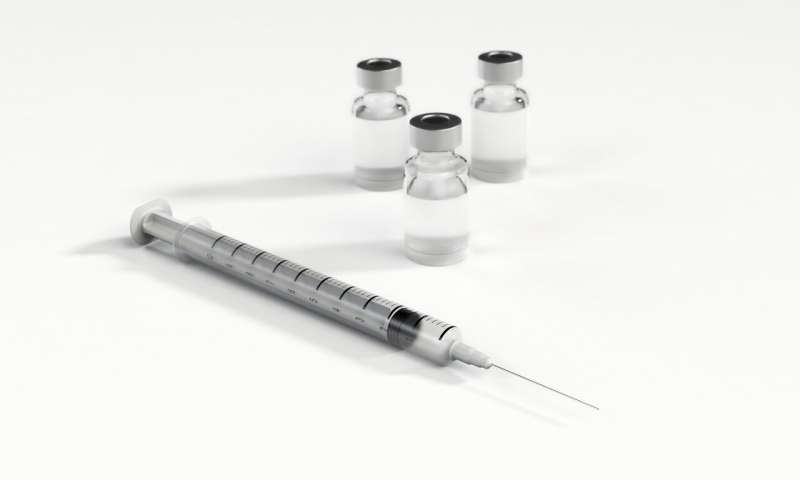This article has been reviewed according to Science X's editorial process and policies. Editors have highlighted the following attributes while ensuring the content's credibility:
fact-checked
peer-reviewed publication
trusted source
proofread
Feeling rough after your COVID shot? That's a sign it's working

Headache, chills, tiredness may be evidence of a supercharged defense, according to UCSF-led study.
Fewer than 1 in 4 people in the United States have received last year's updated COVID-19 vaccine, despite a death toll of more than 23,000 Americans this year.
One of the most common reasons for bypassing the COVID vaccine is concern about side effects like tiredness, muscle and joint pain, chills, headache, fever, nausea and feeling generally unwell. But a new study, led by UC San Francisco, has found that the symptoms indicate a robust immune response that is likely to lessen the chances of infection.
The study, which appears online June 10 in Annals of Internal Medicine, is based on symptom reports and antibody responses from 363 people, who had the Pfizer-BioNTech or Moderna mRNA vaccines when they were first introduced.
After the second dose of the vaccine, the researchers found that those with seven or more symptoms had nearly double the antibody levels of those who did not have symptoms. The participants were mainly in their forties to sixties and had not had the virus.
About 40% of the people in the study also wore a device to monitor their temperature, breathing and heart rate. The researchers found that those whose skin temperature increased by 1 degree Celsius after the second dose had three times the antibody levels six months later, compared to those whose temperature did not increase.
An absence of side effects does not mean the vaccine is not working
"Generally, we found that the higher the number of side effects, the higher the level of antibodies," said first author Ethan Dutcher, MD, Ph.D., a postdoctoral researcher in the UCSF Department of Psychiatry and Behavioral Sciences, and the Weill Institute for Neurosciences. "But this wasn't a hard rule: some people without side effects had better antibodies than some people with side effects."
As the virus has evolved and fatality rates have fallen, many people are underestimating its impact. "The toll of COVID is still high for some—sickness, lost work, lasting fatigue and the dreaded long COVID," said co-senior author Elissa Epel, Ph.D., a vice chair in the UCSF Department of Psychiatry and Behavioral Sciences. "While the symptoms from vaccination can be very unpleasant, it's important to remember that they don't come close to the disease's potential complications," she said.
"With COVID-19 vaccines likely here to stay, identifying what predicts a strong antibody response will remain important," said co-senior author Aric Prather, Ph.D., professor in the UCSF Department of Psychiatry and Behavioral Sciences.
The latest recommendations from the Centers for Disease Control and Prevention are that everyone 6 months and older should receive the updated vaccine, and those 65 and older should receive an additional dose.
The study coauthors include Ashley Mason, Ph.D., and Frederick Hecht, MD, of UCSF; James E. Robinson, MD, of Tulane University; and Stacy Drury, MD, Ph.D., of Tulane University and Boston Children's Hospital.
More information: Annals of Internal Medicine (2024). www.acpjournals.org/doi/10.7326/M23-2956




















